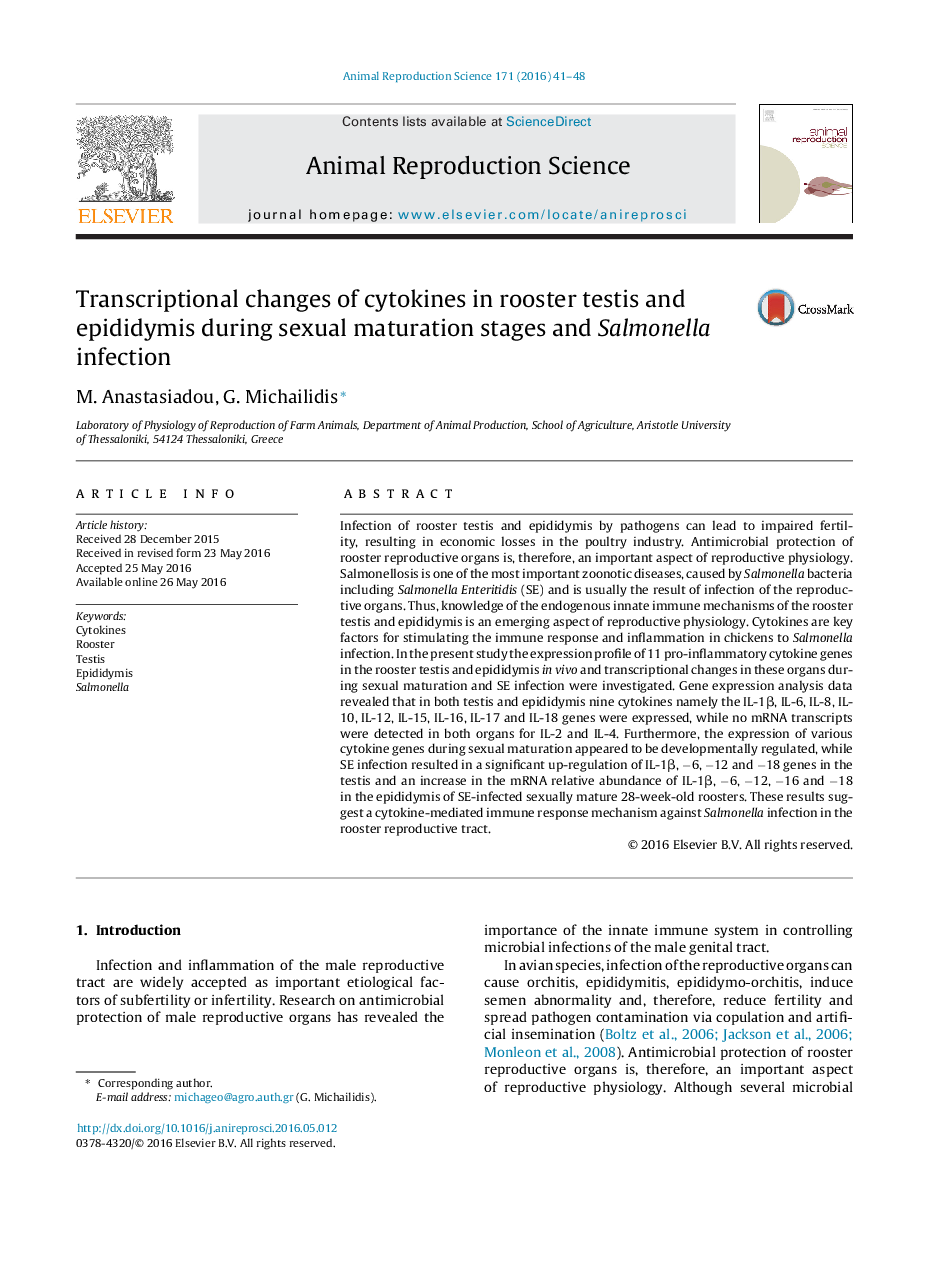| Article ID | Journal | Published Year | Pages | File Type |
|---|---|---|---|---|
| 2072446 | Animal Reproduction Science | 2016 | 8 Pages |
Infection of rooster testis and epididymis by pathogens can lead to impaired fertility, resulting in economic losses in the poultry industry. Antimicrobial protection of rooster reproductive organs is, therefore, an important aspect of reproductive physiology. Salmonellosis is one of the most important zoonotic diseases, caused by Salmonella bacteria including Salmonella Enteritidis (SE) and is usually the result of infection of the reproductive organs. Thus, knowledge of the endogenous innate immune mechanisms of the rooster testis and epididymis is an emerging aspect of reproductive physiology. Cytokines are key factors for stimulating the immune response and inflammation in chickens to Salmonella infection. In the present study the expression profile of 11 pro-inflammatory cytokine genes in the rooster testis and epididymis in vivo and transcriptional changes in these organs during sexual maturation and SE infection were investigated. Gene expression analysis data revealed that in both testis and epididymis nine cytokines namely the IL-1β, IL-6, IL-8, IL-10, IL-12, IL-15, IL-16, IL-17 and IL-18 genes were expressed, while no mRNA transcripts were detected in both organs for IL-2 and IL-4. Furthermore, the expression of various cytokine genes during sexual maturation appeared to be developmentally regulated, while SE infection resulted in a significant up-regulation of IL-1β, −6, −12 and −18 genes in the testis and an increase in the mRNA relative abundance of IL-1β, −6, −12, −16 and −18 in the epididymis of SE-infected sexually mature 28-week-old roosters. These results suggest a cytokine-mediated immune response mechanism against Salmonella infection in the rooster reproductive tract.
